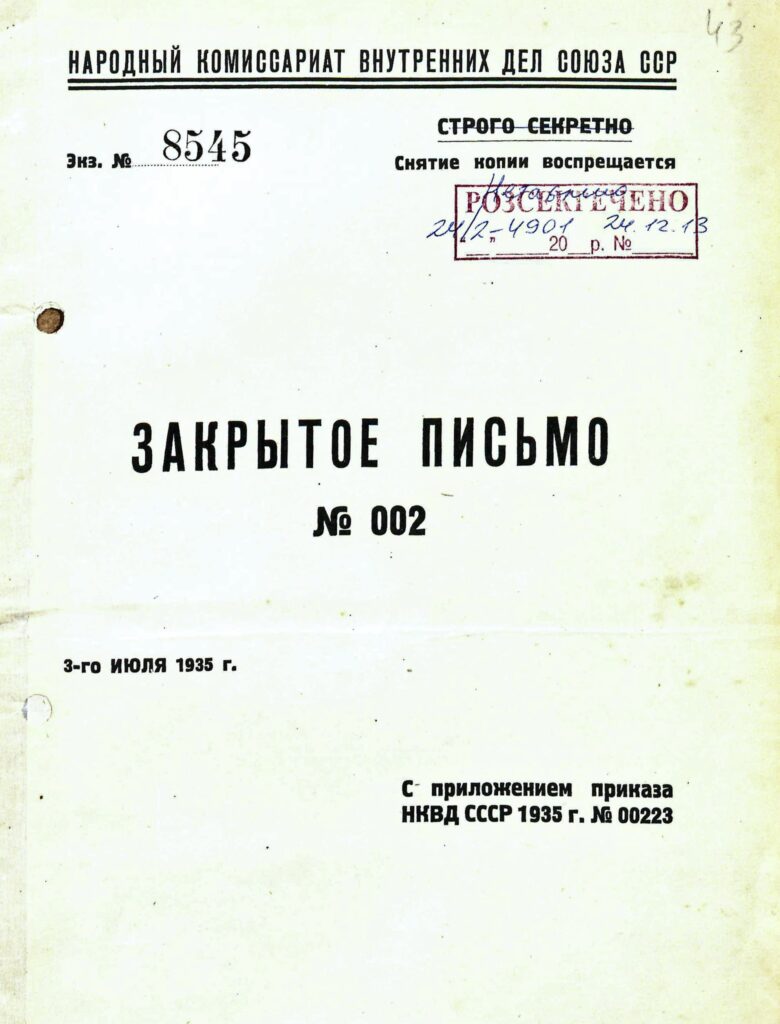CRRC, American Councils and ARISC are pleased to announce the 15th talk of the Spring/Summer 2024 Tbilisi Works-in-Progress series!
The talk will take place in hybrid format in-person at American Councils Georgia and online.
***NOTE*** THIS WEEKS TALK WILL TAKE PLACE AT AMERICAN COUNCILS GEORGIA RATHER THAN AT CRRC!****
“Mass Informing Under High Stalinism: Between Crisis Policing and Intelligence Service Professionalization”
Sophia Kalashnikova Horowitz, Harvard University
Soviet memoirs about the 1930s discuss informing as a mass and deeply ingrained phenomenon which pulled individuals permanently into the orbit of the security services, producing a society fully infiltrated by informers and denouncers. Partly, this is true—mass policing against a large number of enemy groups required mass informing within these groups and in society more broadly. But how penetrating was mass informing in practice, as revealed through police documents and informer perspectives? The extent and efficacy of Stalinist mass informing is questionable. Political police files evidence the prevalence of chaotic information gathering over systematic surveillance: orders and circulars from the police leadership complain, for instance, of the gathering of large quantities low-quality information instead of a focus on important cases through careful informer work. They also point out weak informer-operative connections which lack bonds of professional trust and the precise instruction needed for targeted information-gathering. In no small part, these problems in the mass network were produced by the simultaneous attention of the police to many different groups and goals, as well as by the pressure (caused by Soviet state leaders’ anxieties about domestic politics and the international situation) to obtain quick results. Calls by the political police leadership to raise the quality of informer work and the attempts to enforce the greater individual responsibility of operatives for this part of their job remained largely ineffective. In terms of informer experiences, this situation produced anxious and unwilling informers, even among loyal citizens: these persons did not feel connected to their operatives, the state, or its goals, and seemed to realize the downsides of their work (the precariousness of their position due to a high level of visibility to the political police and due to the suspicions of their friends and associates) much more starkly than the upsides (benefits allocated to loyal individuals). Especially by 1937-1938, one can observe the actual weaknesses of systematic surveillance: the policing goals of the purges forced officers to prioritize results and focus much more on other sources of information (like spontaneous denunciations, denunciations during interrogation, and Party files) as opposed to informer work. In my talk, I will investigate the extent and experience of informing under Stalin, focusing in particular on the operation of the informer network in the mid-1930s and the role of informers in the purges of 1937-1938.
Sophia Kalashnikova Horowitz is a 5th-year PhD candidate in the Harvard History Department. She is working on her dissertation, “The Secret Lives of Soviet Informers: Popular Participation in Political Policing Under Stalin and Khrushchev, 1935-1965.” Using political police files from Ukraine, Lithuania, Moldova, Latvia, Estonia, Germany, and Georgia, she examines the social and institutional history of informer work in the USSR
************
Works-in-Progress is an ongoing academic discussion series based in Tbilisi, Georgia, that takes place at the CRRC office at Chavchavadze Ave. 5 and online. It is co-organized by the Caucasus Research Resource Centers (CRRC), the American Councils for International Education: ACTR/ACCELS, and the American Research Institute of the South Caucasus (ARISC). All of the talks are free and open to the public.
In observation of the spirit of the Chatham House Rule, the talks will not be recorded, and we courteously request that the other participants refrain from recording and/or distributing recordings as well. The opinions expressed in WiP talks are those of the speakers alone, and do not necessarily reflect the views of CRRC, ARISC or of American Councils.









